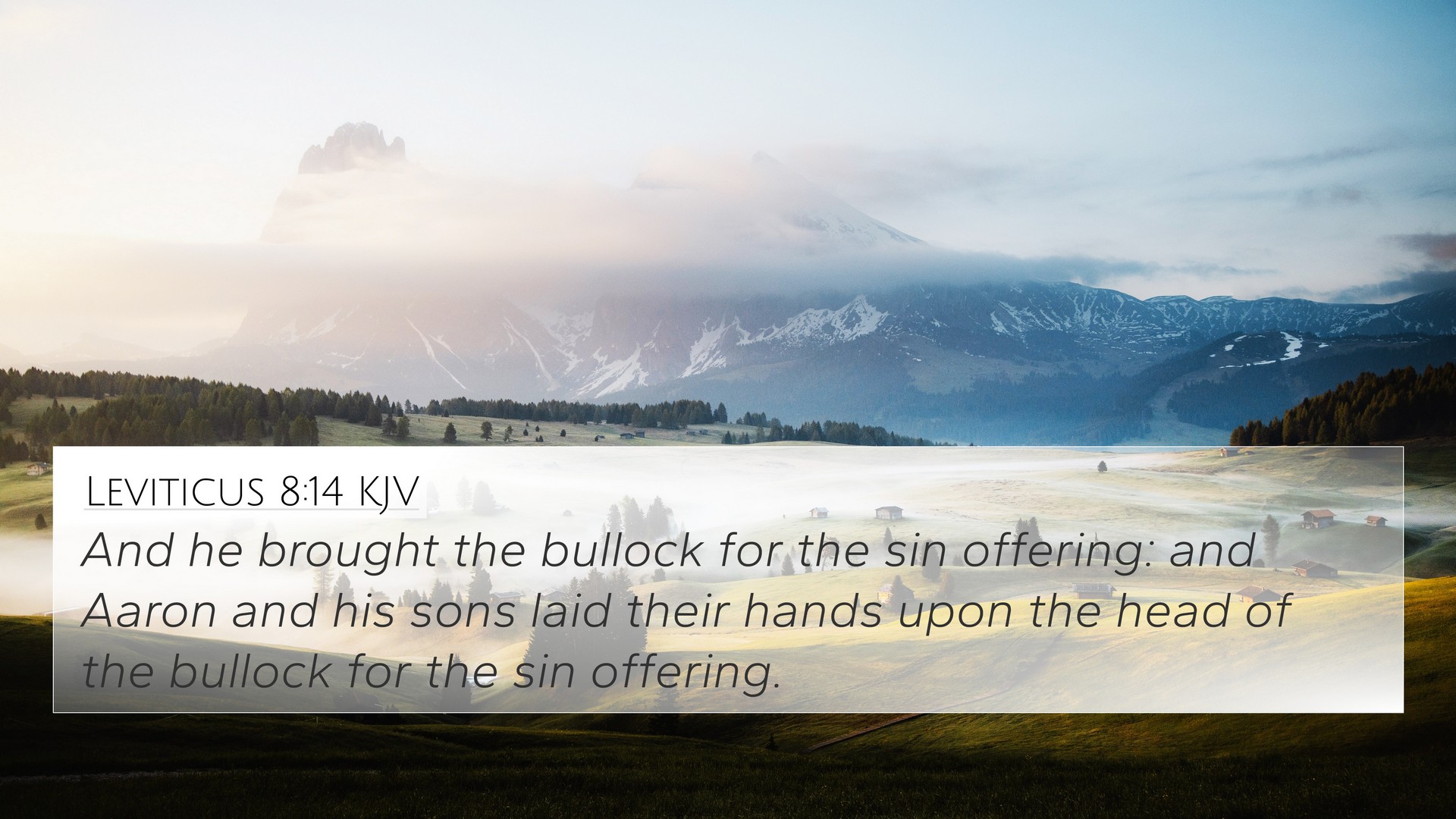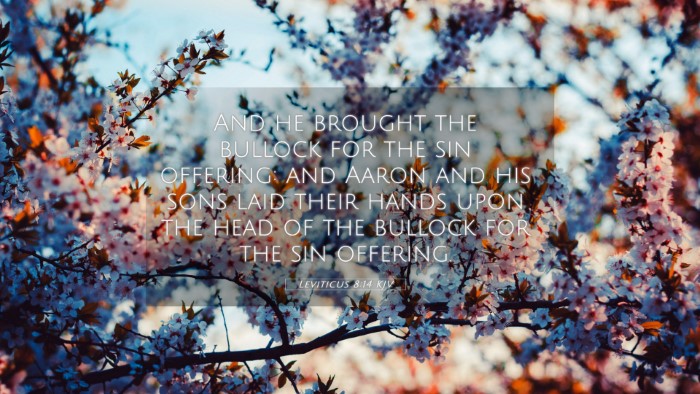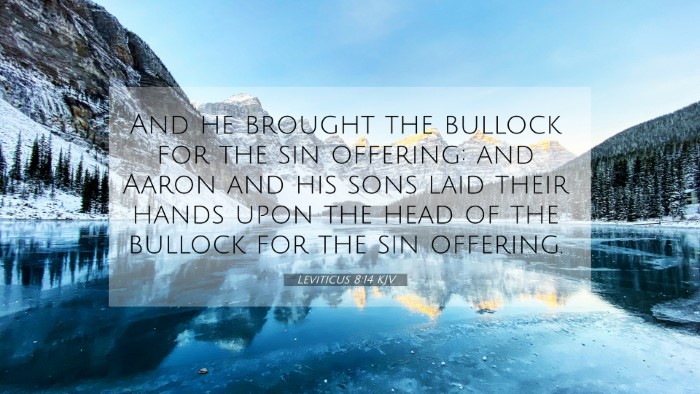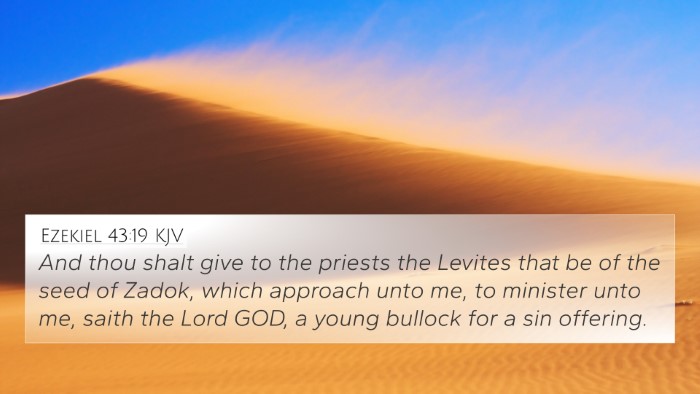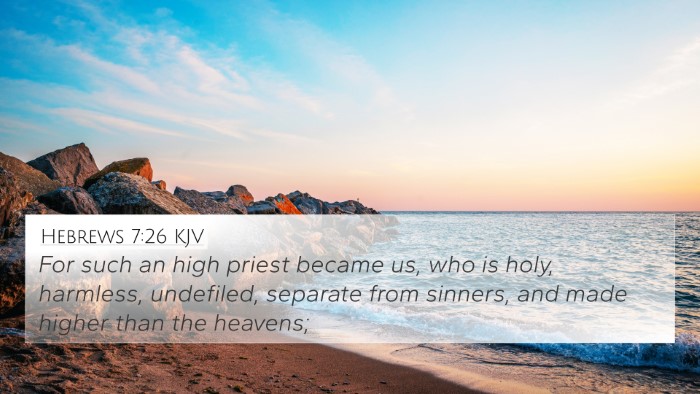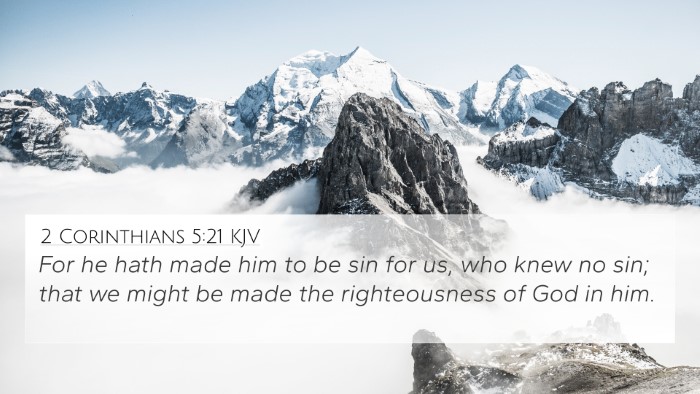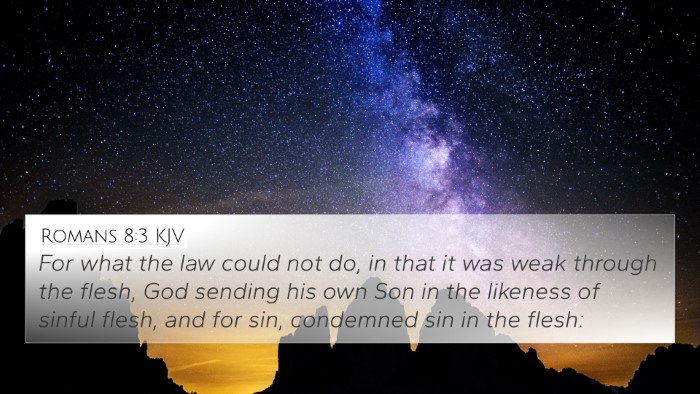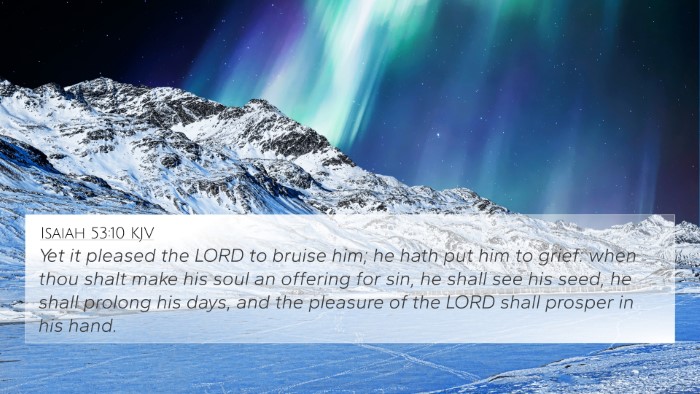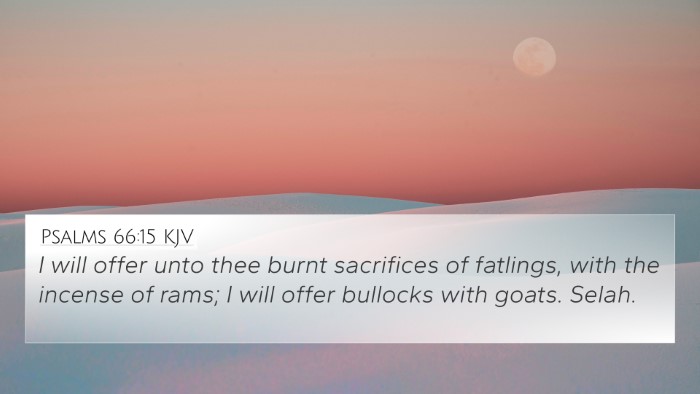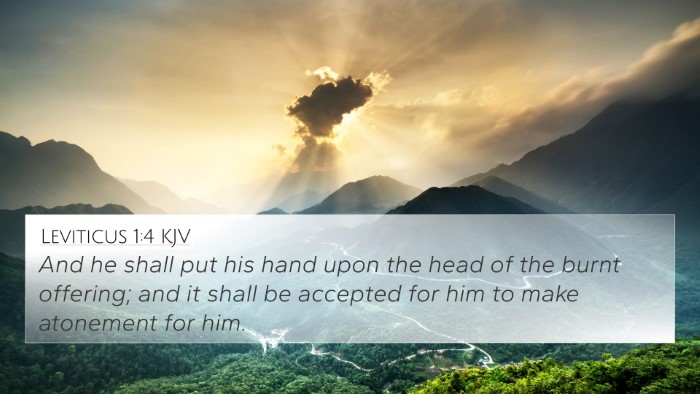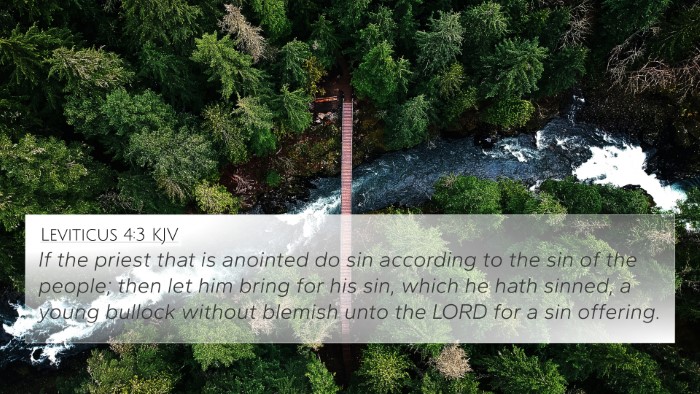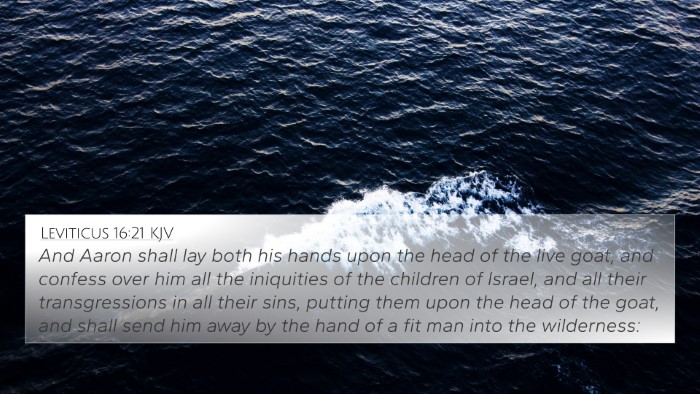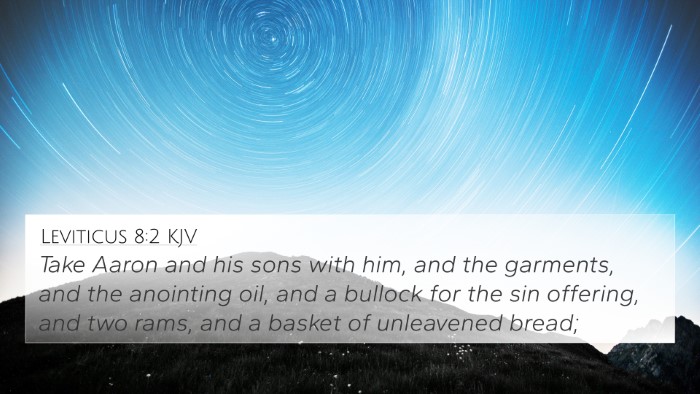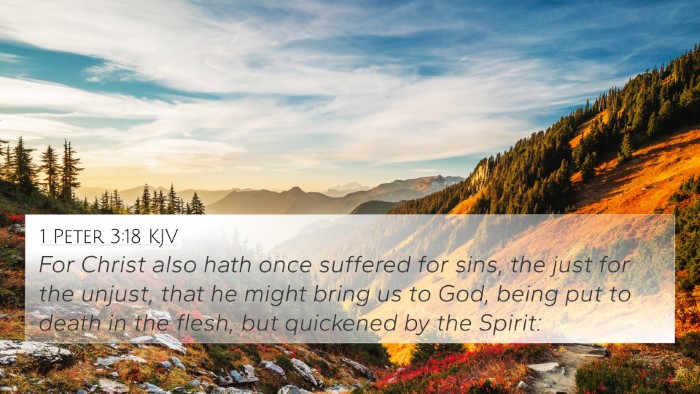Understanding Leviticus 8:14
Leviticus 8:14 is a critical passage in the Old Testament that outlines the ordination of Aaron and his sons as priests, establishing the foundation for the Levitical priesthood. An analysis of this verse reveals its significance in both a historical and theological context, as well as its connections to various other scriptures.
Verse Breakdown
Leviticus 8:14 states: “And he brought the bullock for the sin offering: and Aaron and his sons laid their hands upon the head of the bullock for the sin offering.” This act of laying hands signifies the transfer of sin, an essential ritual in the sacrificial system of ancient Israel.
Commentary Insights
Matthew Henry's Commentary
Matthew Henry emphasizes the importance of the sin offering in this passage, noting that it represents Christ's ultimate sacrifice. He points out that the act of laying hands signifies the identification of the offerer with the sacrifice, a foreshadowing of the atonement Christ would make for humanity.
Albert Barnes' Commentary
Albert Barnes highlights the role of the priest in offering sacrifices, stating that it was a divine institution. He elaborates on the significance of the bullock as a sin offering, which symbolizes the need for atonement and the seriousness of sin. Barnes also explores the ritual's implications for the priesthood and the community's spiritual state.
Adam Clarke's Commentary
Adam Clarke provides insights into the procedures of the offerings, noting that the laying on of hands was a common practice in sacrificial rites. He also relates this act to the concept of substitution, where the sacrifice takes the place of the sinner, pointing to deeper themes of redemption and grace.
Theological Significance
This verse establishes the essential practice of sin offerings for the Jewish people and foreshadows New Testament themes of redemption and substitution through Jesus Christ. The act of laying hands is rich with meaning, representing both a transfer of guilt and the conferral of priestly authority.
Cross-References
Leviticus 8:14 can be connected to various other scriptures, enhancing our understanding of this passage:
- Exodus 29:10-15 - The ordination of priests and the sacrificial system.
- Leviticus 4:4 - The laying on of hands emphasizing the transfer of sin to the sacrifice.
- Hebrews 9:22 - The necessity of blood for atonement, relating to the sacrificial system.
- 1 Peter 2:5 - The idea of believers as a royal priesthood, drawing from the Levitical priesthood.
- Isaiah 53:6 - The concept of the suffering servant bearing iniquities, paralleling the sin offering.
- Romans 6:23 - The wages of sin and the need for atonement through Christ.
- Colossians 1:20 - Making peace through the blood of Christ, reflecting the sin offering's purpose.
- John 1:29 - John the Baptist identifying Jesus as the Lamb of God, links Him to sacrificial themes.
- Hebrews 10:4 - The inadequacy of animal sacrifices, pointing to the ultimate sacrifice of Christ.
- Matthew 26:28 - Christ’s blood as the new covenant, fulfilling the sacrificial system.
Thematic Connections
Leviticus 8:14 brings forth various themes found throughout the Bible, such as:
- Redemption - Highlighting God's provision for the atonement of sin.
- Substitutionary Atonement - The bullock serves as a substitute for the people’s sins.
- Holiness - The need for a holy priesthood to mediate between God and humanity.
- Community and Intercession - The role of priests in representing the people before God.
- Faith and Obedience - The necessity for the Israelites to follow divine commands for atonement.
- Consequence of Sin - The sacrificial system illustrates the severity and consequences of sin.
Practical Applications
Understanding Leviticus 8:14 is crucial for grasping the full narrative of the Bible and the progression toward the New Testament revelation. Here are key takeaways for modern believers:
- Recognize the seriousness of sin - Reflecting on the sacrifices helps us comprehend the depth of Jesus' sacrifice.
- Understand the role of Christ - He is our High Priest and perfect sacrifice, making atonement once for all.
- Embrace the priesthood of all believers - Encouraging believers to intercede for others, reflecting the priestly role.
- Live in holiness - Acknowledging that the call to holiness remains for God's people today.
- Commit to communal worship - Recognizing the importance of communal confession and accountability within the church.
Conclusion
Leviticus 8:14 serves as a foundational passage that offers rich insights into the nature of sin, sacrifice, and priesthood. By examining this verse alongside other scriptures, believers can deepen their understanding of the biblical narrative and its relevance to their faith. The cross-references and thematic connections help us see the interplay of God's covenant of grace throughout the Bible.
